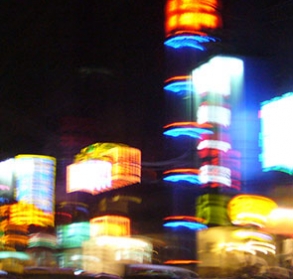
Korean Language and Literature Courses
This course is designed for non-heritage students who have absolutely no prior knowledge of the Korean language. Students will learn written and spoken Korean on self-related and day-to-day topics, and present information both in oral and written forms using formulaic and memorized expressions. They will also engage in simple conversational exchanges on a variety of daily topics. Prerequisites: None.
This course is designed for students who already have elementary comprehension and speaking skills in Korean and have minimum exposure to reading and/or writing in Korean. Prerequisites: Consent of instructor.
This is a continuing course for non-heritage students who have completed K1A or demonstrated an equivalent proficiency level. Students will enhance and broaden their linguistic and cultural competence by learning more essential grammatical structures, daily life expressions and speech acts. The course is also intended to introduce certain cultural aspects through media sources and various activities. Prerequisites: Korean 1A; or consent of instructor.
A survey of pre-modern Korean literature and culture from the seventh century to the 19th century, focusing on the relation between literary texts and various aspects of performance tradition. Topics include literati culture, gender relations, humor, and material culture. Texts to be examined include ritual songs, sijo, kasa, p'ansori, prose narratives, art, and contemporary media representation of performance traditions. All readings are in English.
With equal attention given to speaking, listening, reading, writing, and cultural aspects of the language, students will further develop their language skills for handling various everyday situations. Prerequisites: Korean 1B; or consent of instructor.
This is an intermediate course for students whose Korean proficiency level is higher in speaking than in reading or writing due to Korean-heritage background. Students will elaborate their language skills for handling various everyday situations. Prerequisites: Korean 1BX; or consent of instructor.
This is a third-year course in modern Korean with emphasis on acquisition of advanced vocabulary and grammatical structure. Equal attention will be given to all four language skills: speaking, listening, reading, and writing. Prerequisites: Korean 10B; or consent of instructor.
This is a third-year course in modern Korean with emphasis on acquisition of advanced vocabulary and grammatical structure. Prerequisites: Korean 10BX; or consent of instructor.
This is an advanced course of reading and textual literary analysis in Korean. Advanced reading and writing skills and practice in the use of standard reference tools will also be introduced.
This course is uniquely designed for students who are interested in enhancing their proficiency level up to high-advanced or superior level through the lens of Korean popular media. By analyzing various media such as movies, documentary, TV shows, K-Pop songs, and news articles, students will broaden their knowledge and understanding about Korean society and culture in a deeper level, which is vital in advancing proficiency.
This course is for students wanting to acquire high-advanced and superior level Korean proficiency in Korean business settings through the nuances of job-related communication and cultural expectations. Students master appropriate workplace terminology, expressions, and professional style spoken and written form. They complete job a search, plan a new product, present and negotiate the product status, and finally present the product externally.
This course is designed to help advanced Korean students understand the influence of history and politics on contemporary Korean culture. Students will analyze contrastive views on historical events reflected in writings and media. Structured as a seminar format, students will take active roles in a class by sharing their inquiries and findings on course materials. A superior level of speaking and writing competence will be promoted based on advanced reading and listening competence. Prerequisites: Korean 101 or Korean 102; or consent of instructor.
This course will examine the works of major poets in the first half of the 20th century and will consider the formation of modern Korean poetry. Particular attention will be given to the ideas of lyricism, modernism, and the identity of a poet in the context of the colonial occupation of Korea. Prerequisite: Korean 100A or Korean 100AX.
This course offers a historical overview of Korean cinema from its colonial development to its present renaissance. It covers Korean film aesthetics, major directors, film movements, genre, censorship issues, and industrial transformation as well as global circulation and transnational reception. In an effort to read film as sociocultural texts, various topics will be discussed. All readings are in English.
Cold War Culture in Korea: Literature and Film. This course examines the formation and transformation of global Cold War culture in South Korean literature and film of the 20th century. It pays close attention to representations of the Korean War and its aftermath in literature and cinema, but opens up the field of inquiry to encompass larger sociocultural issues related to the Cold War system manifest in literature and cinema. Prerequisites: None.




